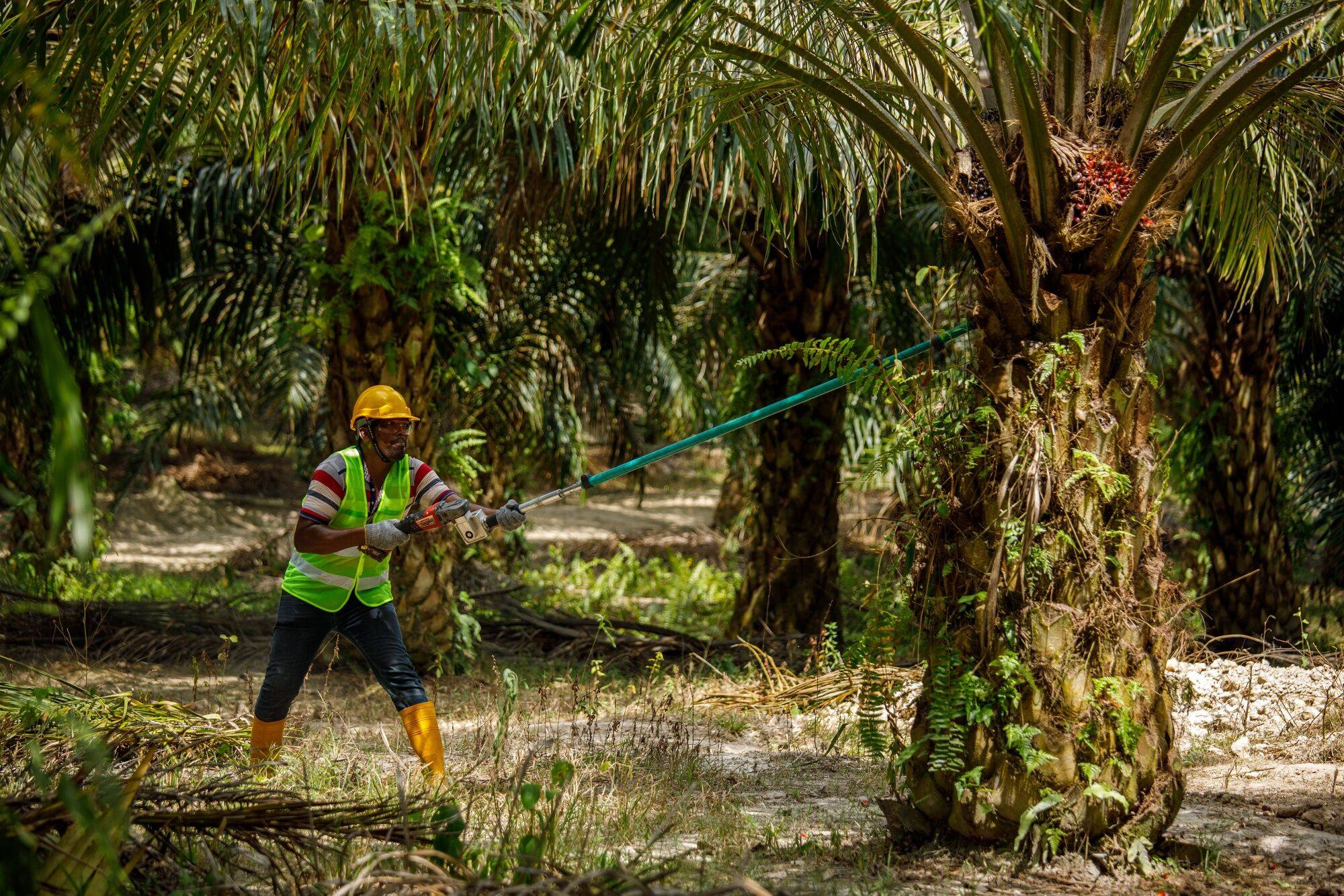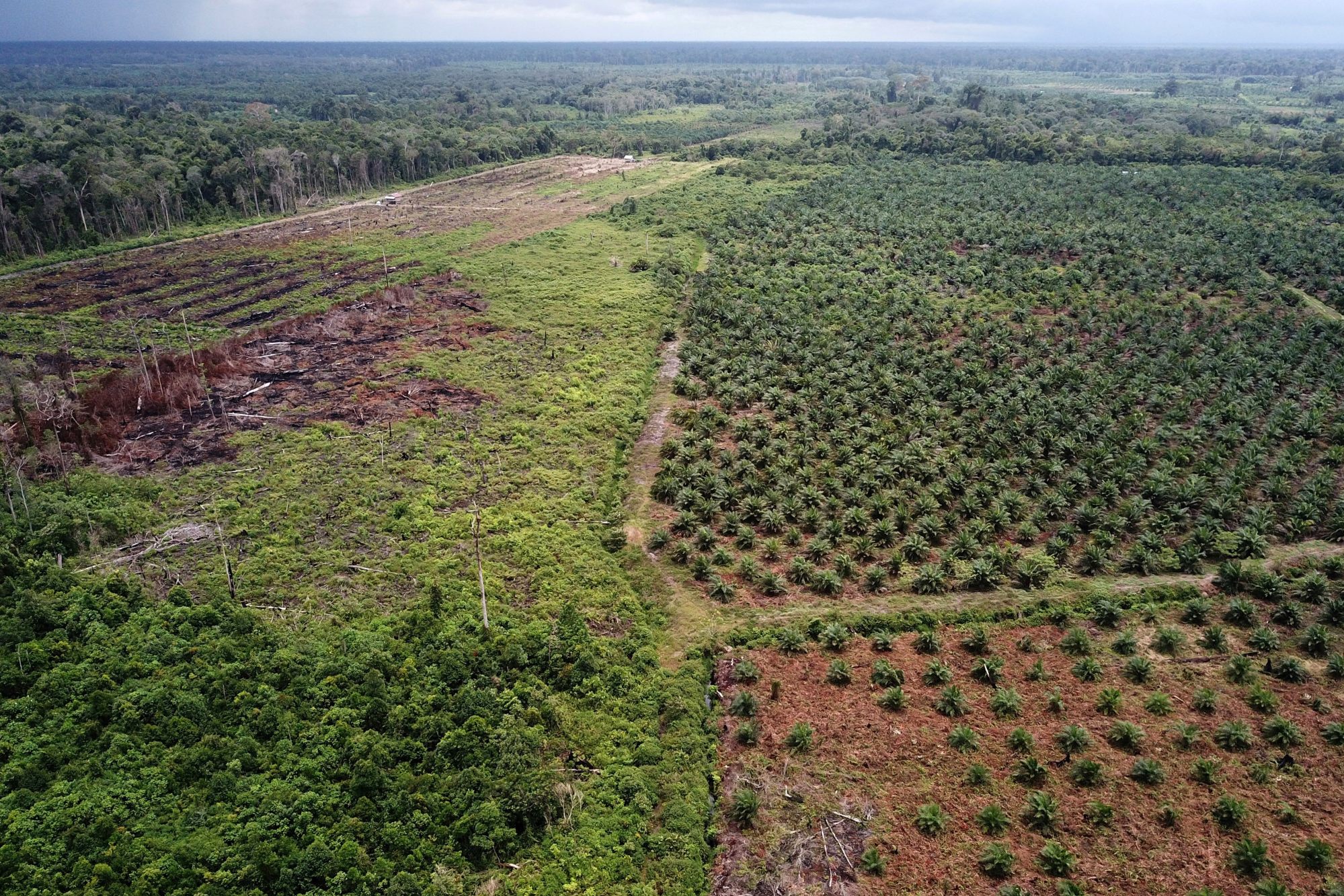
Malaysia, Indonesia unite to fight ‘discriminatory’ EU over palm oil curbs
- The leaders of the world’s top two palm-oil producers are demanding that the European Union ‘promptly address’ a new law aimed at forest protection
- Onerous compliance conditions set out under the ‘unjust’ deforestation regulation will hit exports – and hurt the smallest farmers most, they say
Malaysia and Indonesia account for more than 80 per cent of the world’s total palm-oil exports, which can be found in everything from pastries to cosmetics.

“The EU needs to promptly address such discriminatory measures and work towards a fair and equitable resolution,” said the statement, issued after the two leaders held a meeting during Jokowi’s first official visit to Malaysia since 2019.
In April, the European parliament approved the EUDR, a landmark deforestation law that will ban the import of goods if they are found to be linked to the destruction of forests in their country of origin.
Aimed at eliminating deforestation from the EU’s supply chains, the law will require companies selling goods to the bloc to produce a due diligence statement and verifiable information to prove that the products were not grown on land that had been deforested after 2020.
Besides palm oil, the law will also apply to soy, beef, wood, cocoa, coffee, rubber, charcoal and derivative products such as leather, chocolate and furniture, according to a Reuters report.
An ‘unjust’ handicap?
Malaysia has described the new law as “unjust” and an attempt to protect the EU’s domestic oilseeds market, which cannot compete with palm oil, and that it would have an adverse effect on small-scale farmers who would be unable to meet compliance costs.
EU policymakers have denied these claims, saying the rules apply to all commodities produced anywhere in the world and that the EU market remains open to sustainably produced palm oil.
Last month, Malaysia and Indonesia made their case in a joint-trade mission to Brussels where they met with top EU officials to raise their concerns over the new law.

Both nations also suspended trade talks with the EU pending negotiations for fairer treatment of palm oil smallholders affected by the EUDR, the Financial Times reported.
The EUDR is only the latest issue to affect ties between the EU and the world’s top two palm-oil producers.
Protecting workers’ rights
Anwar and Jokowi also discussed measures to protect the rights of Indonesian citizens working in Malaysia, with both leaders agreeing to establish a mechanism “to address all issues pertaining to all migrant workers in a comprehensive manner”.
Indonesia is a key source of labour for Malaysia, where foreign workers are typically hired in the tens of thousands to pick oil palm fruit in large commercial plantations and to staff factories, and also as domestic helpers.
Malaysia’s government said at the time that numerous cases of abuse suffered by Indonesian domestic workers at the hands of their Malaysian employers was a major reason behind the temporary ban.
Indonesia is Malaysia’s sixth-largest trade partner, with 130.14 billion ringgit (US$28.4 billion) of total trade done by the two regional neighbours last year, according to Malaysian government data.

